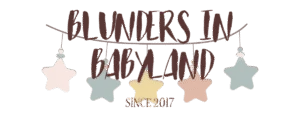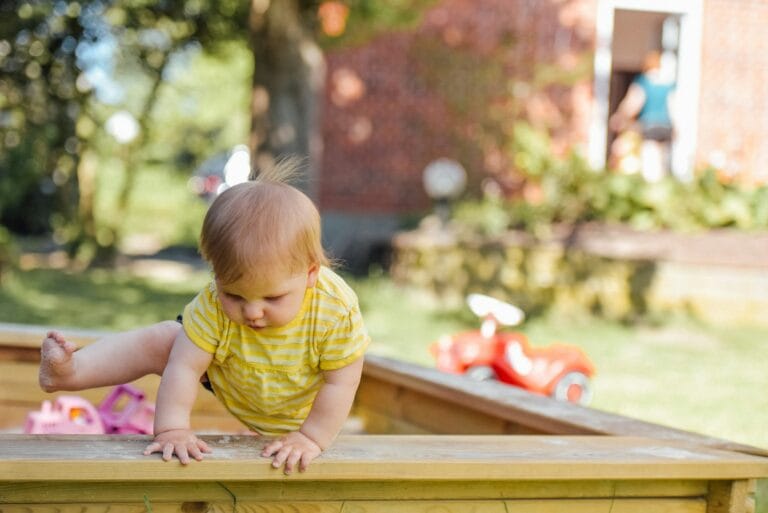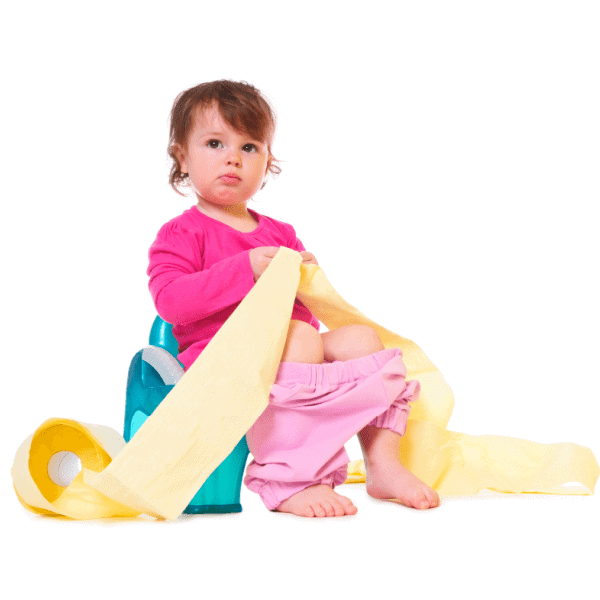25+ Best Open-ended Questions for Toddlers and Preschoolers
Ever feel like you’re stuck in a cycle of one-word answers from your little one? Even after two kids, I know I have! Let me share with you the secret that can boost early childhood development and forge a beautiful bond you’ll both enjoy: open-ended questions. Udani from Home Made Legacy is going to introduce us to the power of open-ended questions for toddlers and preschoolers.
In this article, we’ll explore why open-ended questions are essential for your child’s development and how they can take your everyday interactions from mundane to extraordinary. Plus, Udani gives us some fantastic types of questions for every situation. It’s time to spark creativity, boost critical thinking, and foster meaningful conversations with your little one!
If you feel like your little one is giving “Yes” and “No” answers pretty often and it doesn’t go anywhere further, it’s time to up your game with some really good open-ended questions to start positive interactions with them.
RELATED POSTS:
- Limiting Screen-Time for Toddlers: 10 Tips to Help!
- Best Educational Apps for Toddlers
- Best Quiet Time Activities for Toddlers: 15 Ideas to Keep Your Little One Busy
25+ Examples of Open-Ended Questions for Everyday Use
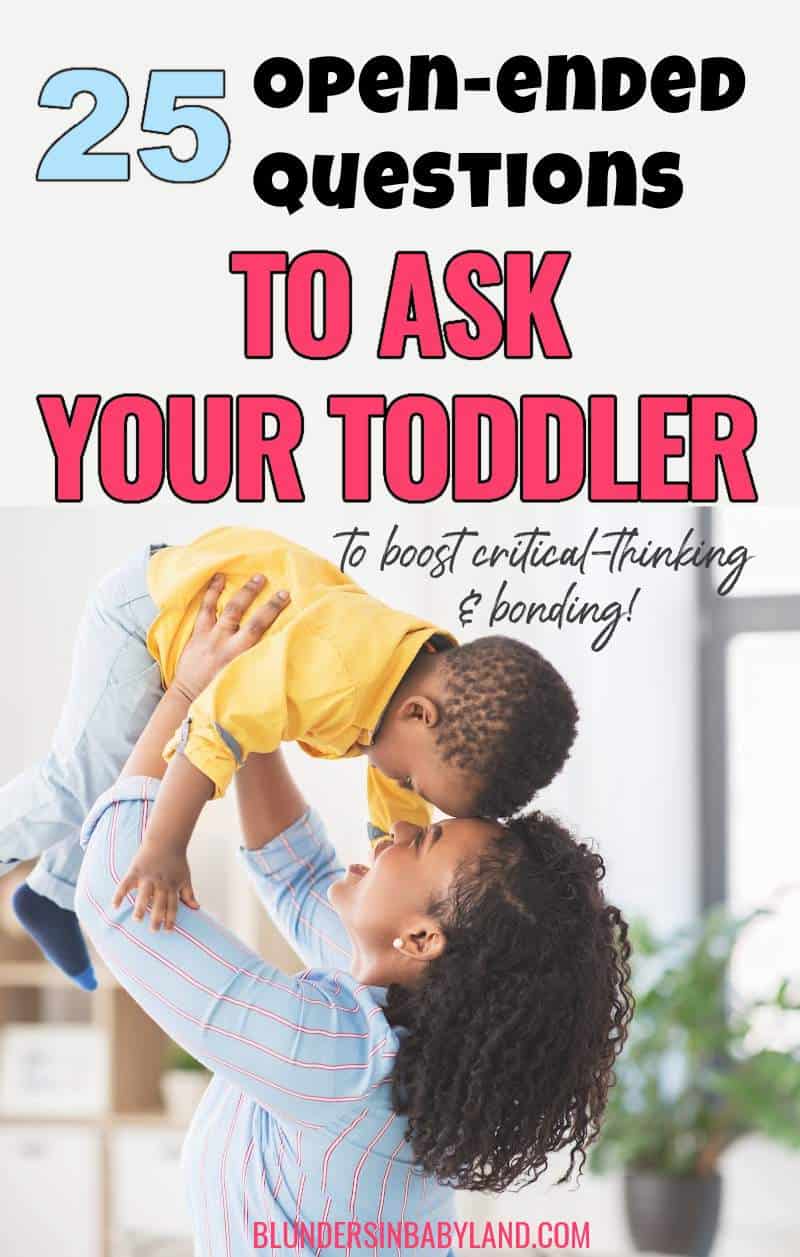
Open-ended questions about their day
1. What did you do during group time at kindergarten?
2. What did you do with your best friend today?
3. What was your favourite activity in the kinder today? And why?
Exploring Feelings
4. What made you feel happy today?
5. Can you tell me what you like to do when you feel sad and angry?
6. What did you feel when I dropped you off at the kinder today?
Open-ended questions about their play and activities
7. Can you tell me how you made this beautiful paper plane?
8. What are the activities we can do with playdough?
9. How do you think we can stack all these wooden blocks without them falling apart?
Questions about books or stories
10. What would you do if you had a magic wand like the princess in this book?
11. Is there any other way the main character could help her friend?
12. Does this story remind you of something that happened to us yesterday?
Observations and experiences
13. What are your best memories of last Christmas?
14. If you were to plan your birthday party this year, what would you change from your last one?
15. What do you think about the last episode of Bluey?
Open-ended questions during meal times
16. How do you feel when you enjoy your favourite meal with the family?
17. What do you think we should make for dinner?
Open-ended questions during story reading
18. Can you think of another story with a little brown bear who didn’t want to sleep?
19. Do you want to tell me why you like this story?
Outdoor Activities
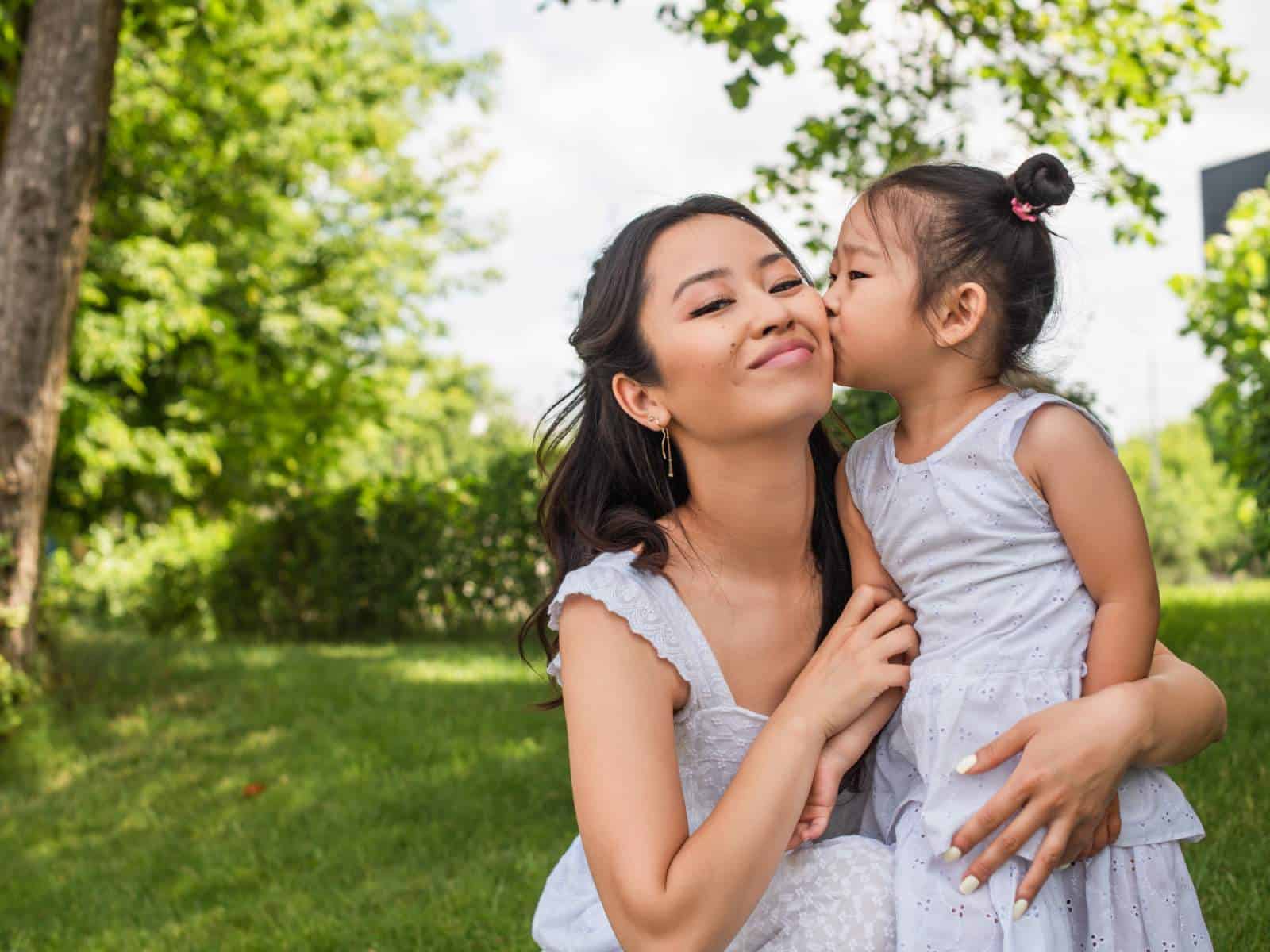
20. There are a lot of pinecones. What do you think we can do with them?
21. How did you make this bridge?
Open-Ended Questions for Preschoolers and Learning
22. What was your favorite thing you learned about today?
23. If you could teach your friends something new, what would it be?
24. What do you enjoy most about storytime at preschool?
25. If you could make a classroom, what would it look like?
Open Ended Questions for Preschoolers and Toddlers FAQ
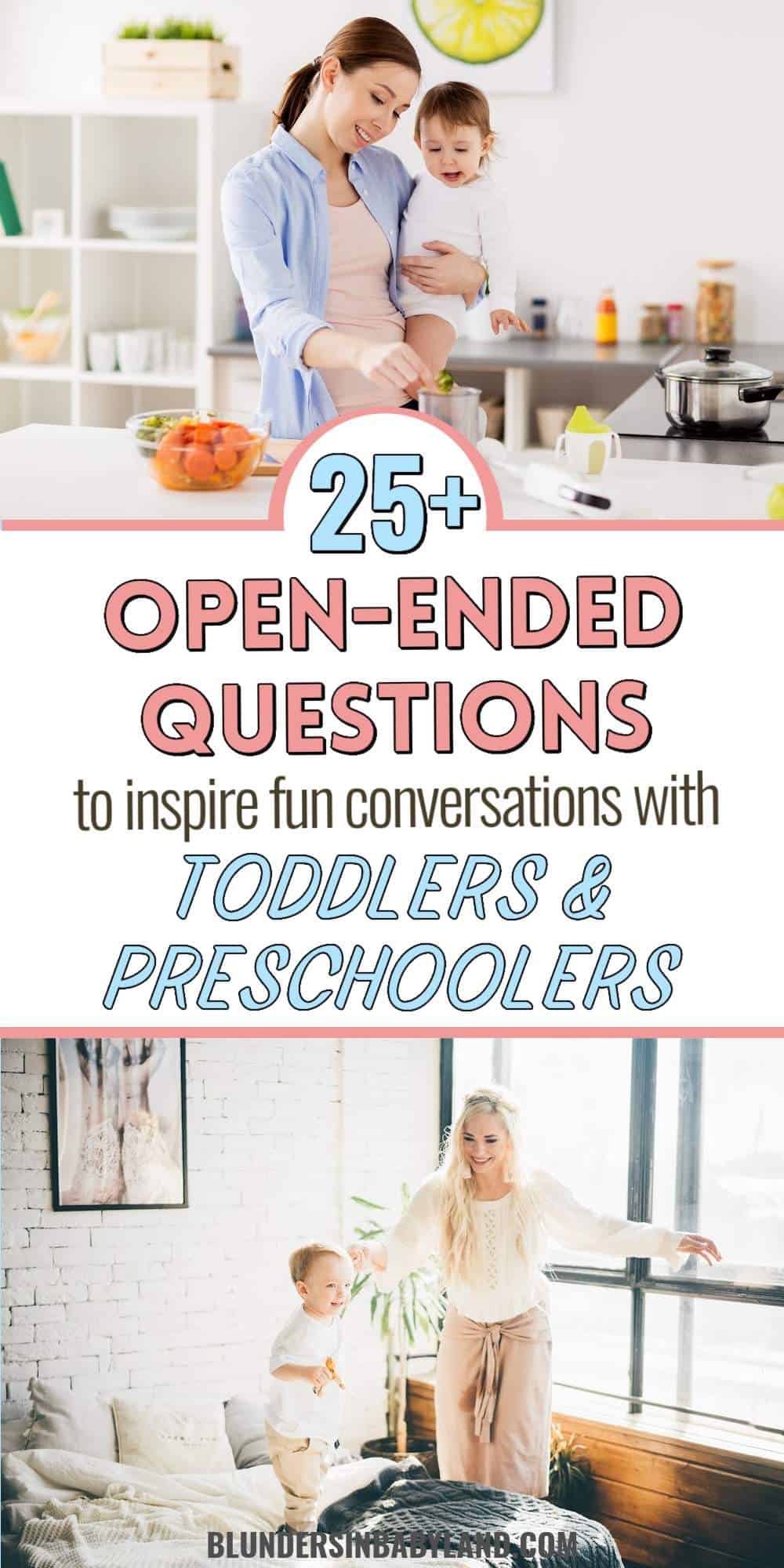
Why are open-ended questions are important for children’s development?
Open-ended questions are a powerful tool to help children to think critically and creatively, analyze, imagine, think, and rethink before answering.
On the other hand, closed questions like “Are you hungry?” “Shall we play?” only require a one-word answer (Yes or NO) and that’s it. Unless we continue with an open-ended question, it’s really hard for us to build up a meaningful conversation based on that.
Trust me, open ended questions can change your everyday conversations from boring to animated, from silent to engaged or from casual to creative.
Yes, they do have the ability to lift the spirit.
Examples of open-ended questions:
- Do you want to tell me about your painting?
- What made you feel happy today and why?
- Can you tell me how you made this beautiful mud castle?
- It’s a beautiful day. What do you think we can do today?
What are the Benefits of Asking Open-Ended Questions?
Open-ended questions benefit toddlers and preschoolers in many layers.
Asking open ended questions fosters problem-solving
Open ended questions have so many possible answers and the child can expand those ideas at his will. The child can sort out, evaluate and be creative with the answers and still keep the answer relevant.
It’s like a small exercise for their brain which improves their reasoning and critical thinking.
Ex: Where would you like to spend our holiday? city or countryside and why do you choose that?
Here they have two options. They need to compare and contrast and decide which is better. Of course, with a good reason to justify their answer.
These critical thinking activities help you get a better idea.
Enhances language and communication skills
Open-ended questions can spark imagination and give many possibilities for different scenarios. Children may use a lot of descriptive words to explain their view, evaluate different possibilities and pick one.
This requires a lot of communication on their part which eventually improves children’s language skills. To help your toddler improve communication skills, read more on how to help toddler talk
Encourages creativity and imagination
Some open-ended questions encourage kids to be creative and imaginative. Especially when they are asked to predict what will happen next or imagine what they would have done in a certain scenario, they will come up with so many ideas.
They can predict the impossible and create the most unheard-of stories. That’s where they learn to be creative.
Building self-esteem and confidence
When they know that their ideas and opinions are given importance, they will feel more confident in voicing them. Which, in turn, helps your child to express his emotions in different ways.
This improves their self-esteem and sense of belonging.
Strengthens the parent-child bond
You are your child’s first friend. When you ask them questions that dig into their feelings and thoughts, you are inherently showing them that they’re important to you.
Needless to say, as they feel more comfortable opening up to you about different and varied areas, the parent-child bond is going to get better and better.
How to Use Open Ended Questions In Your Daily Routine

Choosing the right time and place
Open-Ended questions require some time for the kids to process. So, a relaxed time when you two can have an uninterrupted conversation is ideal.
Using age-appropriate language
This is extremely important. From a 3-year-old you may ask “Do you want to tell me why you like blueberries so much?”. But as they grow older and their language skills become more advanced you can expect them to talk about more complex areas.
Ex: What do you like more? Christmas or Easter? Why?
Here they have to recall their previous experiences, compare and contrast and give a reasonable answer. Ideal question for a 5-year-old!
Follow up with more questions or comments
Afterward, it might be tempting to follow up with closed-ended questions. However, the more you show you are interested in what they have to say, the more confident they will be and the more detailed their response will be.
Ex: Can you tell me why you painted the river black?
Child: Because the water is dirty.
You can continue this conversation by asking them how they think the water got dirty, what they think we should do about it etc.
Be patient and giving them time to respond
After all, it’s a small child processing and trying to find the right wording to express their opinion. They may struggle or use incomplete sentences.
- Be patient and give them enough time to respond.
- Avoiding leading questions and assumptions
Meaning, avoid making assumptions like “This is muddy water” or “the water is dirty.” Simply let THEM tell you if the water is dirty or somebody dropped a black paint bottle into the river” or something you would never ever imagine.
Let them interpret it on their own terms.
Remember, there are no right or wrong answers!
Conclusion: What Are Some Questions You Ask?
Open-ended questions will help your child open up to you about their thoughts and ideas, given that we are ready to listen to them.
The benefits they bring to the table are amazing, not just the skill set they improve but also the bond it creates between you guys. By utilizing open-ended questions, we can nurture their curiosity, encourage critical thinking, and create meaningful conversations that enhance their development.
I hope this article encourages you to ask open-ended questions that lead to memorable conversations! Mostly importantly, I hope they will encourage you to think of a few of your own. Please feel free to share your experiences in the comments. Have fun!
